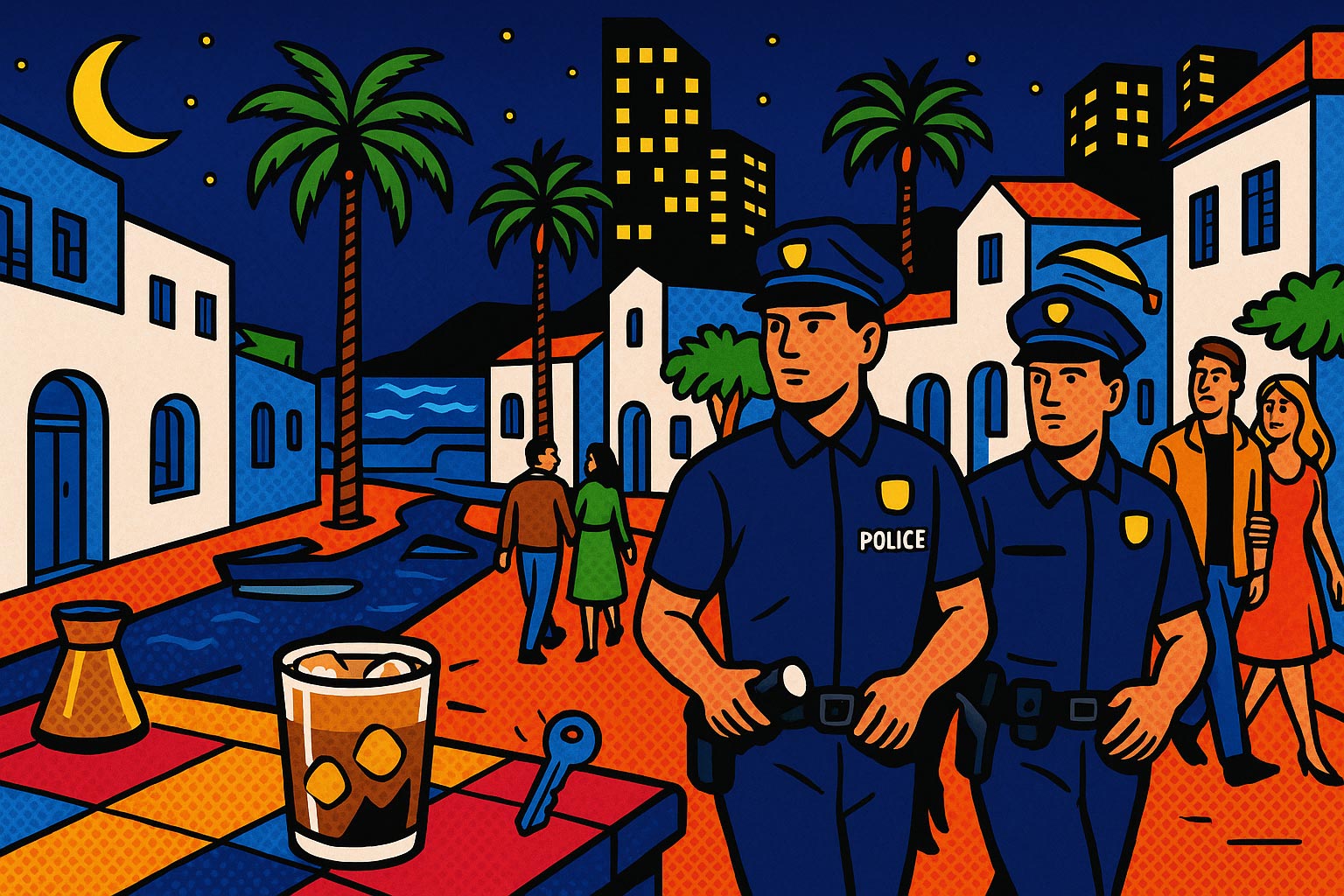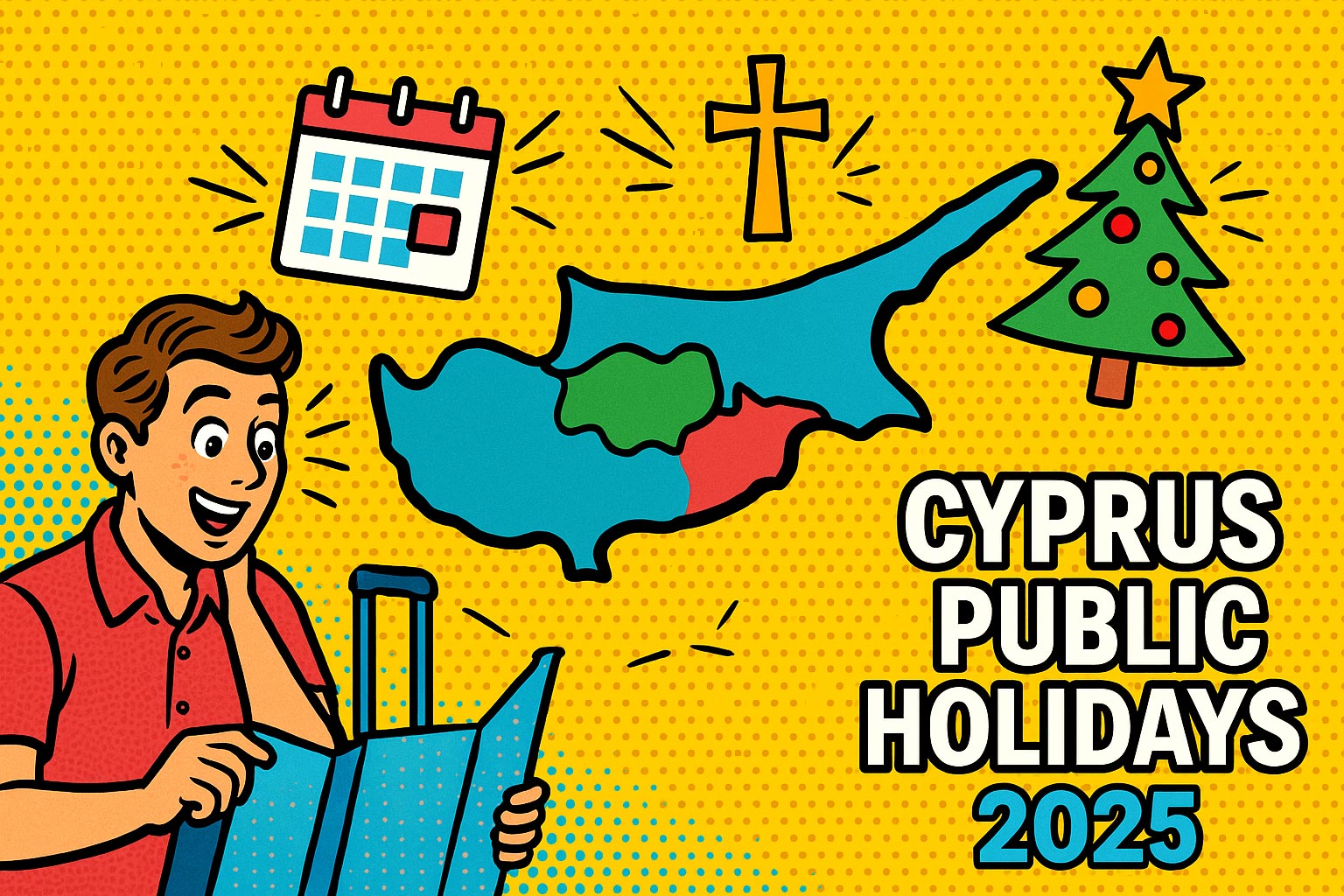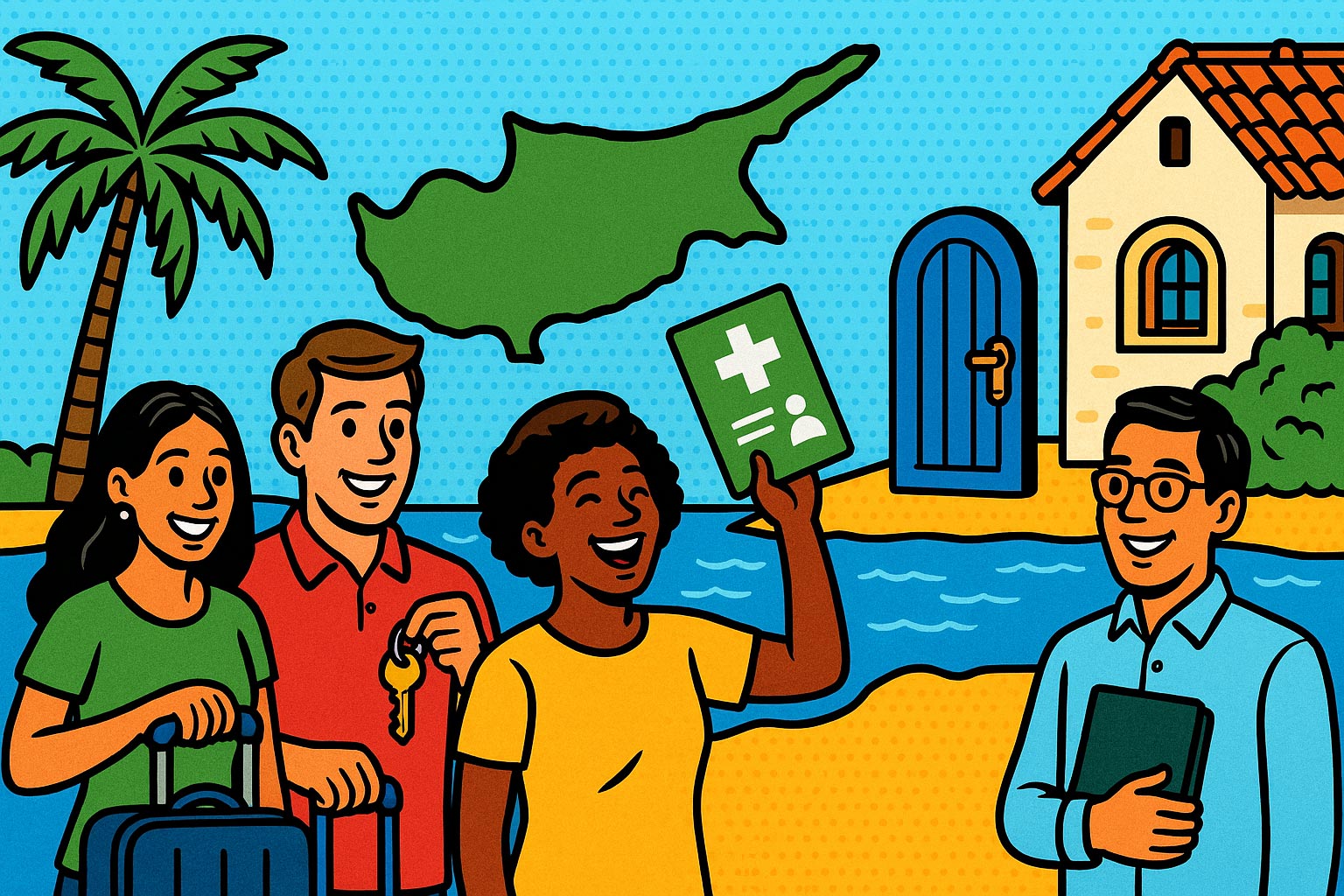- 1. Understanding Crime Rate Cyprus: The Big Picture
- 2. Is Limassol Safe at Night? A Closer Look
- 3. Key Neighborhoods and Their Safety Ratings
- 4. Role of Law Enforcement and Public Safety Initiatives
- 5. Practical Night-Time Safety Tips for Cyprus Residents and Visitors
- 6. Navigating Safety: Final Thoughts on Crime in Cyprus and Night-Time Security
- 7. Frequently Asked Questions
- 8. Author
Cyprus, known for its stunning Mediterranean coastline and rich historical tapestry, often conjures images of tranquility and a slow-paced island life. However, like any other place, crime exists here, and understanding the reality behind the numbers is essential for residents and visitors alike. This article delves deeply into the crime rate Cyprus experiences, how the police statistics Cyprus present a clearer picture, and what neighborhoods are safest. Furthermore, it addresses one of the most common concerns: is Limassol safe at night? By blending factual data with practical advice, this comprehensive guide aims to arm readers with knowledge to navigate Cyprus safely, day or night.
Understanding Crime Rate Cyprus: The Big Picture
Crime rate Cyprus has been the subject of various perceptions over the years. The country, politically divided, with the southern Greek Cypriot-controlled area and the northern Turkish Cypriot administration, generally reports low levels of violent crime compared to other European nations. However, like many popular tourist destinations, Cyprus’s crime dynamics are influenced by factors such as economic conditions, tourism seasons, urban development, and law enforcement strategies.
The most reliable resource for understanding these dynamics is police statistics Cyprus regularly publish. These documents provide detailed breakdowns by type of crime, region, and trends over time. Analyzing these figures paints a nuanced picture: violent crimes like armed robbery and assault remain rare, but property crimes such as theft and burglary are more common, especially in urbanized or tourist-heavy areas.
The majority of crimes in Cyprus fall under non-violent categories, including pickpocketing, car theft, and petty vandalism. These acts tend to spike slightly during the summer months when the influx of tourists presents more opportunities. Cyprus’s relatively small population and strong community ties in many neighborhoods also contribute to the lower incidence of serious crime, fostering a general sense of safety.
Crime in Cyprus is predominantly non-violent, with property crimes leading the numbers, especially in urban and tourist areas.
Crime Trends Over the Last Decade
Examining the evolution of crime rate Cyprus through police statistics Cyprus over the last ten years offers valuable insights. There is evidence of gradual improvement in controlling violent offenses, reflecting stronger regulatory frameworks and effective policing. Moreover, authorities have increasingly targeted cybercrime and fraud, which, while less visible, have shown significant growth with digital advancements.
On the flipside, economic fluctuations sometimes correlate with upticks in certain crimes. For instance, during financial downturns, property crimes experienced short-term increases. Nevertheless, these surges have been temporary, with rates declining as recovery occurs. This cyclical pattern is predictable and responds to government policies and public awareness campaigns.
Is Limassol Safe at Night? A Closer Look
Limassol, Cyprus’s second-largest city and a bustling port, draws visitors and residents for its cultural vibrancy and economic opportunities. A frequent question among travelers and locals alike is: is Limassol safe at night? Addressing this query requires a layered understanding of the city’s crime profile, neighborhoods, and security infrastructure after dark.
Based on police statistics Cyprus release, Limassol’s crime rate is consistent with that of other major urban centers on the island. Nighttime crime incidents mostly involve minor theft, occasional bar-related disturbances, and traffic infractions rather than severe violent confrontations. The city’s nightlife districts, especially in the old town and along the marina, are popular but require vigilance typical of any metropolitan environment.
Several districts within Limassol have been identified as safer than others. Residential zones with active community policing and good lighting tend to have lower crime incidents at night. Conversely, areas with higher transient populations or clustered nightlife venues report more disturbances. Tourists and residents are advised to avoid poorly lit streets and locations far from main traffic routes after dark.
Limassol is generally safe at night, but exercising common-sense precautions in nightlife hotspots and less populated areas is essential.
Night-Time Crime Patterns in Limassol
The distribution of crime during nighttime in Limassol follows predictable patterns. Alcohol-related offenses, such as public drunkenness or minor altercations, are more frequent around weekend evenings. Theft, including snatches and pickpocketing, peaks near entertainment hubs. However, violent crimes remain statistically low, with police maintaining a strong presence to deter escalation.
Transport hubs and main roads enjoy good surveillance and quick police response times, adding to overall safety. Taxi services and rideshare apps have increased availability, reducing risk for late-night travelers who might otherwise walk through less secure areas. Moreover, local businesses often coordinate with police to ensure patron safety during busy hours.
Key Neighborhoods and Their Safety Ratings
Cyprus’s urban centers comprise diverse neighborhoods whose characteristics influence their safety profiles. Whether in Nicosia, Limassol, Larnaca, or Paphos, crime rate Cyprus charts show variations tied to economic status, population density, and local amenities. By examining neighborhoods personally and through police statistics Cyprus publish, residents can make informed decisions about where to live or visit.
In Nicosia, affluent neighborhoods tend to experience fewer property crimes and almost no violent offenses. Some working-class or high-density apartment areas see increased reports of vandalism and theft, though serious crimes remain uncommon. Limassol follows similar trends, where seaside districts and gated communities have reputations for safety, while transient-heavy areas near transport hubs report higher petty crime.
Paphos and Larnaca, despite being smaller cities, face their own challenges during tourist seasons. Popular beaches and resort zones experience spikes in non-violent incidents such as theft, usually against tourists. However, local police often ramp up patrolling during these times, helping keep overall crime under control.
| City | Neighborhood | Safety Level | Common Issues |
|---|---|---|---|
| Nicosia | Engomi | High | Rare, mainly petty theft |
| Limassol | Germasogeia | High | Minor disturbances, occasional vehicle theft |
| Larnaca | City Center | Medium | Pickpocketing during peak tourism season |
| Paphos | Kato Paphos | Medium | Theft near tourist spots, vandalism |
Neighborhood-specific crime varies widely across Cyprus, with wealthier, well-policed areas generally safer.
Role of Law Enforcement and Public Safety Initiatives
Police statistics Cyprus provide underscore the proactive role of law enforcement in maintaining safety and reducing crime. The Cyprus Police, a centralized force managed by the Ministry of Justice and Public Order, emphasizes community policing, crime prevention education, and rapid response. Their presence is a crucial factor in lowering serious crime rates, especially in densely populated or tourist-heavy neighborhoods.
Crime prevention programs tailored to Cyprus’s unique socio-economic landscape have made significant inroads. These include neighborhood watch initiatives, public awareness campaigns on personal safety, and collaboration with private security firms managing residential developments. Drone surveillance and enhanced CCTV installation are also increasingly deployed in urban and critical transport areas.
Technological advancements have helped law enforcement better track trends and respond swiftly. Cybercrime units address online fraud, identity theft, and digital scams that are on the rise. In parallel, training for officers in conflict de-escalation and intercultural communication helps manage public interactions in diverse communities and tourist interactions.
Effective policing strategies and community engagement underpin Cyprus’s relatively low violent crime rates and rising public safety standards.
Practical Night-Time Safety Tips for Cyprus Residents and Visitors
Regardless of Cyprus’s relatively favorable safety record, no place is completely free from risk. Nighttime brings unique challenges, notably reduced visibility, fewer people on the streets, and potential for impaired judgment due to alcohol or fatigue. Understanding the limits of safety and practicing simple precautions ensures that residents and tourists can enjoy Cyprus without undue worry.
First and foremost, choosing the right mode of transport after dark is critical. Walking alone in poorly lit or secluded streets is not advisable. Taxis and rideshare services should be preferred, particularly for trips longer than a few blocks. When walking, stay on main roads and well-lit areas, avoiding shortcuts and isolated paths.
For those frequenting nightlife venues, moderating alcohol intake can prevent vulnerability to opportunistic crimes. Keeping personal belongings secure and close reduces theft risk. It’s also wise to travel in groups where possible. Before heading out, anyone unfamiliar with a neighborhood should consult local advice or hotel concierge recommendations on which areas to avoid at night.
Have emergency numbers saved and your phone charged. The Cyprus Police emergency number is 112 or 199, and quick access to these contacts can be critical. Notifying someone else about your whereabouts adds a layer of precaution.
- Use well-lit, busy streets at night
- Opt for licensed taxis or rideshare apps
- Avoid walking alone, especially in unfamiliar neighborhoods
- Keep valuables secure and hidden
- Limit alcohol consumption to stay alert
- Utilize hotel or local guidance on safe nighttime areas
- Save emergency contact numbers on your phone
Simple, practical steps like using well-lit paths, traveling in groups, and securing valuables significantly increase night-time safety in Cyprus.
Crime in Cyprus, when examined through objective police statistics Cyprus provide, is generally low compared to many European benchmarks. The island’s allure as both a peaceful home and international tourist destination stems from this blend of natural beauty and relative public safety. Yet, as the data shows, safety levels differ by neighborhood and situation, especially once night falls.
Limassol, a dynamic urban center, remains safe for night-time activities provided individuals apply caution typical of any growing city’s nightlife scene. Understanding local crime trends and neighborhood reputations empowers people to enjoy what Cyprus offers while protecting themselves from predictable risks.
Law enforcement efforts and community programs bolster safety across the island, but personal responsibility is equally vital. Adopting practical safety strategies, being informed about local conditions, and respecting the norms of neighborhoods are the pillars of a secure experience in Cyprus.
Ultimately, the reality embedded in the raw numbers reveals an island striving for harmony between everyday life, tourism, and security. By staying vigilant and informed, residents and visitors alike can fully embrace the vibrant, safe atmosphere Cyprus meticulously nurtures.
Frequently Asked Questions
- What is the overall crime rate in Cyprus compared to other European countries?
The crime rate in Cyprus is generally lower than many European countries, especially concerning violent crimes. Property crimes are more common but remain manageable with law enforcement efforts. - Is Limassol safe to visit at night?
Yes, Limassol is considered safe at night, especially in well-populated areas. Exercise normal precautions around nightlife districts and avoid poorly lit or isolated locations. - Which neighborhoods in Cyprus are safest to live in?
Affluent residential areas like Engomi in Nicosia and Germasogeia in Limassol offer higher safety levels, with low rates of violent and property crime. - What are common types of crime in Cyprus?
Common crimes include theft, pickpocketing, minor vandalism, and occasional bar-related disturbances, with violent crime being relatively rare. - How effective is the Cyprus Police in maintaining safety?
The Cyprus Police are proactive, maintaining strong community policing, rapid response capabilities, and increasing use of technology to reduce crime. - What precautions should tourists take at night in Cyprus?
Travel in groups, use licensed taxis or rideshares, stay on well-lit main roads, avoid excessive alcohol, and keep valuables secure. - Are there seasonal differences in crime rates in Cyprus?
Yes, crime rates, particularly theft and petty crime, often increase during the busy tourist seasons, with police increasing patrols to manage this.



